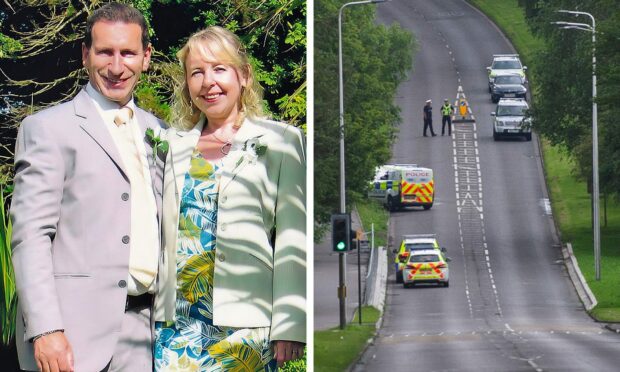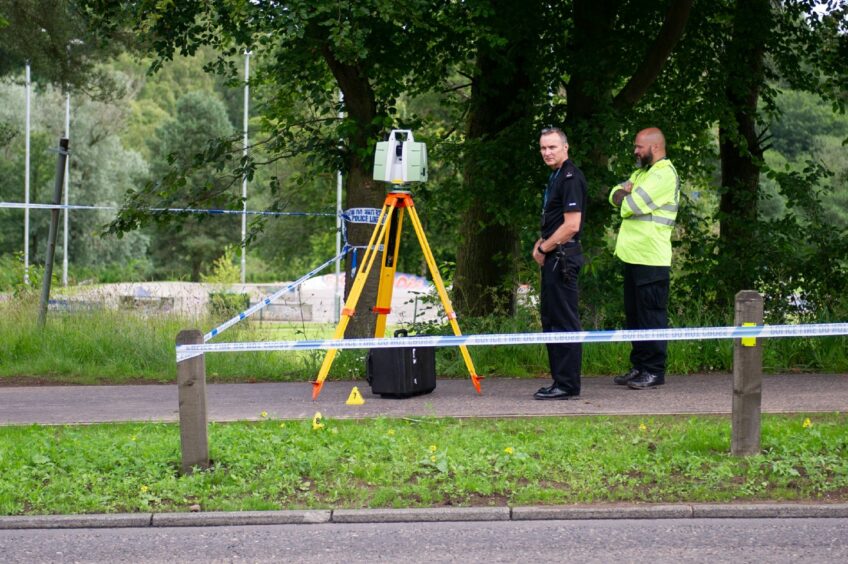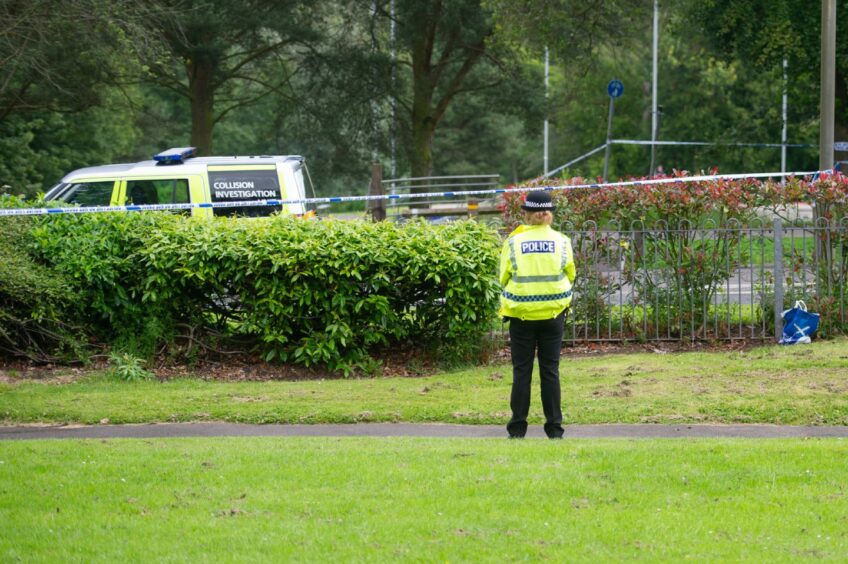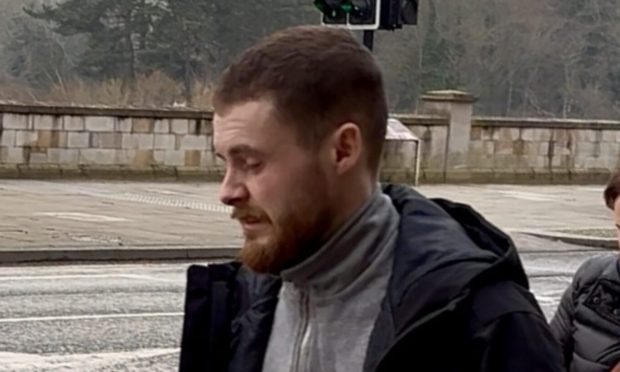A car that hit and killed a couple as they walked along a Fife road did not appear to brake before impact, a court has heard.
Police crash scene investigator Peter Marshall said tyre marks in the grass indicated the wheel of the vehicle was “rolling” when it struck Harry and Shirley Taggerty.
The pair died at the scene at Glenrothes’ Riverside Park after being hit by a Ford Fiesta driven by Liam McWatt on July 13 2019.
The High Court in Edinburgh heard they landed nearly 50 metres from the point at which they were struck.
McWatt, 24, from Glenrothes, denies causing their deaths by dangerous driving.
Car computer studied
PC Marshall analysed data from an on-board computer on the vehicle – the restraint control module (RCM) – which detected two collision events but no braking action.
The RCM showed the car had accelerated in the five seconds prior to the first collision – the car hitting a tree stump – after leaving the road and hitting the Taggertys.
A second collision registered when the car flipped upside down.
PC Marshall said: “On grass, had there been braking or if ABS had engaged you would expect to see some sort of scuff mark but there was nothing.”
A wheel and part of the suspension were ripped from the vehicle by the collision with the tree stump.
The RCM also showed no sign McWatt had tried to avoid a collision and the car had accelerated for a time.
PC Marshall said there was a “gradual increase in speed for five seconds” from 45 mph to 58 mph, then a drop to approximately 49 mph as a result of the first collision.
He said in the time before and between collisions “the brake pedal hadn’t been pressed at all.”
Medical opinions
The court also heard from Dr Nilesh Champaneria, the medic who treated McWatt at Kirkcaldy’s Victoria Hospital following the crash.
He described McWatt as “fit and well”, with minor injuries.
Dr Champaneria said the accused had told him he had taken “Snus” – a tobacco product – under his lip, which made him feel “light headed” due to a “head rush”.
McWatt stated he had used the product before but “didn’t feel it compromised his ability to drive”, the doctor said.
He also told the doctor he had not blacked out or had a seizure.
NHS Tayside consultant cardiologist Dr Stuart Hutcheon was asked to review McWatt’s medical records.
He said, two days after the collision, McWatt and his mother had asked to be referred to a cardiac specialist to see if there was an underlying cause for the crash.
McWatt was seen by a specialist in Edinburgh who put him through rigorous tests.
Dr Hutcheon said in his opinion, it was “unlikely” McWatt had suffered a black out at the time of the crash as he had no history of doing so before or since.
Agreed evidence
The court previously heard police officer Joseph Archer describe the scene as “very tragic and very traumatic”.
He said Mr and Mrs Taggerty showed no signs of life after being thrown into the air and down a three-metre embankment.
A statement from now-deceased witness Lee Tindall described how Mr Taggerty, 61, had attempted to pull his 58-year-old wife out of the way of McWatt’s vehicle seconds before it struck them.
On the opening day of the trial on Tuesday, jurors were told agreed evidence McWatt was the driver of the car which struck and killed the Taggertys, that he passed a breath test and the car had no contributory defects.
McWatt, of Leslie Mains, Leslie, denies driving dangerously, while using a mobile phone and at excessive speed, entering the opposing carriageway into the path of oncoming vehicles.
The charge states he mounted a grass verge and failed to take evasive action prior to striking the couple on the footpath.
The trial before Lord Scott continues.
For more local court content visit our dedicated page, or join us on Facebook.













